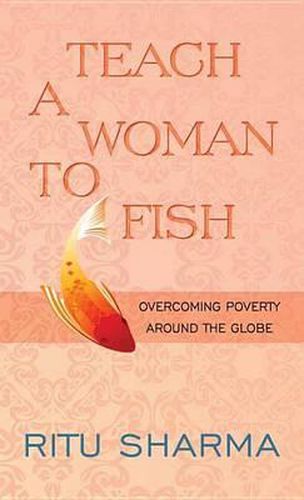Readings Newsletter
Become a Readings Member to make your shopping experience even easier.
Sign in or sign up for free!
You’re not far away from qualifying for FREE standard shipping within Australia
You’ve qualified for FREE standard shipping within Australia
The cart is loading…






As the old axiom goes: Give a man a fish and he eats for a day. Teach a man to fish and he eats for a lifetime. But teach a woman to fish, and everyone eats for a lifetime. In this firsthand account, Ritu Sharma shares how women can, and are, overcoming the forces that keep them in poverty. She chronicles her travels through four countries-Sri Lanka, Burkina Faso, Honduras, and Nicaragua-and the intimate interactions she had with the women living there. Sharma’s story not only details her experiences, but also looks at the broader systems that prevent women from leaving poverty behind. From lack of property rights and government corruption to the scarcity of basic infrastructure like roads, these women are restricted by the external limitations placed upon them. Sharma draws from her experiences to frame a larger exploration of how Americans can be instrumental in helping women break free of restrictive systems and begin to facilitate women’s upward mobility. Written in her engaging personal voice, Teach a Woman to Fish provides an insider’s look at women in poverty, how Washington works, and how change really happens-from the United States to the rest of the world.
$9.00 standard shipping within Australia
FREE standard shipping within Australia for orders over $100.00
Express & International shipping calculated at checkout
As the old axiom goes: Give a man a fish and he eats for a day. Teach a man to fish and he eats for a lifetime. But teach a woman to fish, and everyone eats for a lifetime. In this firsthand account, Ritu Sharma shares how women can, and are, overcoming the forces that keep them in poverty. She chronicles her travels through four countries-Sri Lanka, Burkina Faso, Honduras, and Nicaragua-and the intimate interactions she had with the women living there. Sharma’s story not only details her experiences, but also looks at the broader systems that prevent women from leaving poverty behind. From lack of property rights and government corruption to the scarcity of basic infrastructure like roads, these women are restricted by the external limitations placed upon them. Sharma draws from her experiences to frame a larger exploration of how Americans can be instrumental in helping women break free of restrictive systems and begin to facilitate women’s upward mobility. Written in her engaging personal voice, Teach a Woman to Fish provides an insider’s look at women in poverty, how Washington works, and how change really happens-from the United States to the rest of the world.